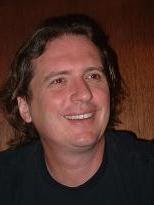Focus, Patience and Concentration
"For the first time in our history we are becoming neurotically impatient. We’re becoming socially dysfunctional. We have cell phones attached to our ears.” So stated acclaimed mentalist and entertainer the Amazing Kreskin in a recent interview. Kreskin once predicted that, “Americans would become an attention-deficit disordered culture that is all about immediate gratification.”
Kreskin is not the only figure who has voiced concerned about how technological advances may be diminishing our capacity for the absolutely essential mental talents of focus, patience and concentration. A continous stream of info can overwhelm our ability to distinguish the important and the trivial, eventually causing us to tune out. In addition, the unrelenting stimulation these tools supply can condition us to expect that the pace of life should also always be rapid and instantaneous, which is simply unrealistic. True mastery of anything worthwhile involves focused and determined effort whether it is in education, work, sports or the arts.
This situation is not unlike how labor-saving devices like the automobile have contributed to an overall decrease in physical fitness levels. However, just as some people choose to maintain excellent physical condition, mental fitness can also be chosen and cultivated.
As mentioned previously, focus, patience and concentration are necessary for success in almost any aspect of life. These mental skills are also the cornerstones of active listening skills, essential for good personal relationships. Perhaps you’ve heard of how people with magnetic personalities have a knack of making you feel like you were the only person in the room? Well, who would be attracted to someone who seems to be focused everywhere and anywhere except the HERE and NOW?
There are simple action steps you can take to safeguard your ability to focus, these include:
-Arrange set times away from mass media and communications technology. Although they have their useful and rightful place, over usage just leads to further distractibility. Consider spending more time in a place of natural beauty like a beach or park.
-Practice active listening with those people you really care about. Truly LISTEN without judging or forming a rebuttal. This is an amazing gift to give to another person as it makes him or her feel truly valued, unfortunately it has also become quite rare.
-Practice self-hypnosis or meditation daily, it helps to maintain healthy brain-wave activity.
-Stimulate your psyche with new challenges like studying an unfamiliar subject. Select activities that force you into a meditative "single point of attention."
-Remember to BREATHE, RELAX and BE in the present moment, make a habit of it.
As the wonderful old saying goes, “Yesterday is history, tomorrow is a mystery, but today is a gift, that’s why it’s called the PRESENT.”
P.S. I came across a wonderful link relating to how the age-old Sabbath tradition of taking off one day in seven can help us deal with modern stress. If interested visit: http://theholisticmall.com/_wsn/page15.html

